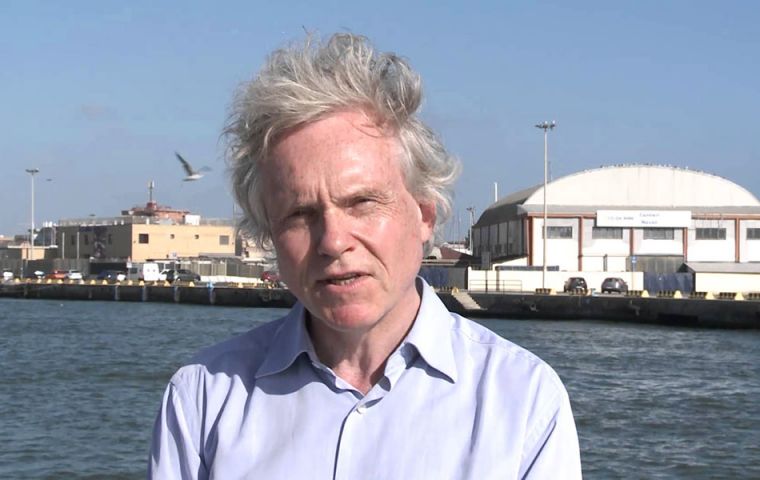MercoPress. South Atlantic News Agency
FAO summit in Morocco addresses fish trade traceability and eliminating IUU fishing
 “Trade in fish is much more important than people think, both in absolute and relative terms,” said Audun Lem, Deputy-Director in FAO's Fisheries Division
“Trade in fish is much more important than people think, both in absolute and relative terms,” said Audun Lem, Deputy-Director in FAO's Fisheries Division  The Port State Measures to Prevent, Deter and Eliminate Illegal, Unreported and Unregulated Fishing has been ratified by 21 nations and needs 25 for full legal force
The Port State Measures to Prevent, Deter and Eliminate Illegal, Unreported and Unregulated Fishing has been ratified by 21 nations and needs 25 for full legal force High-level delegations of fisheries ministries from more than 50 countries are gathering in Agadir, Morocco for a summit with industry players to discuss emerging governance needs in a sector that provides the world with 17% of its animal protein and developing countries with more export revenue than meat, tobacco, rice and sugar combined.
The globalization of the fish trade, driven in large part by fast growth in aquaculture, raises challenging needs for better rules and practices regarding traceability, labor conditions and the protection of biodiversity as well as commercial preparations for shifts in demand, consumption habits, climate change impacts, and the rapid rise of supermarkets with their corollary supply chains.
“Trade in fish is much more important than people think, both in absolute and relative terms,” said Audun Lem, Deputy-Director in FAO's Fisheries and Aquaculture Policy and Resources Division as well as secretary of the Sub-Committee on Fish Trade whose biennial meeting is being held in Africa for the first time.
Dialogues over the week-long meeting in Morocco will help FAO, its member countries and industry representatives understand new trends, opportunities and challenges in the fishing sector, fostering the development of strategies that can “best position developing countries to develop their fisheries sectors in a sustainable manner and to maximize their economic benefit from the growth we expect to witness,” Lem said.
Ministers are also poised to agree in Agadir on FAO's proposed technical guidelines for catch documentation schemes, a set of documents testifying to the legal origin of the catch, facilitating traceability of the product throughout the supply chain. This could become an important tool in curbing illegal fishing, a goal mandated by the United Nations General Assembly.
As fish production, processing and consumption often takes place in different countries, international collaboration and harmonization is critical to assure success in this effort. Private sector engagement with a FAO project on catch documentation schemes for tuna has been unexpectedly high, reflecting industry interest in complying with sustainability goals.
Central to the effort is FAO's Agreement on Port State Measures to Prevent, Deter and Eliminate Illegal, Unreported and Unregulated Fishing which has now been ratified by 21 nations and is on course to have the 25 national ratifications required to enter into full legal force by the time the Committee on Fisheries, a global intergovernmental forum, meets at FAO's headquarters in July.




Top Comments
Disclaimer & comment rulesCommenting for this story is now closed.
If you have a Facebook account, become a fan and comment on our Facebook Page!